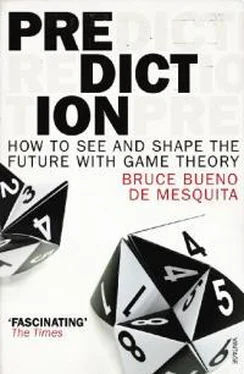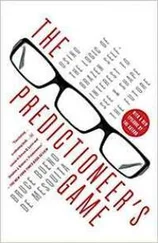Dealers don’t like getting these phone calls. Their typical first response is, “Sir, you cannot buy a car over the phone.” My reply: “Well, I have purchased many cars this way, so maybe I can’t buy a car from you over the phone, but I know I can from others. So if you do not want to sell a car to me, that is fine.” That is the end of the conversation with a few dealers, but not many. The common follow-up is a line salespeople like to use on the showroom floor when you tell them you are shopping around. “Sir, if I quote a price to you, the next dealer will quote fifty dollars less and you’ll buy it from him.” Pat has reverted to the standard approach and is now trying to regain control by making me feel I should be willing to pay an extra $50, as if I owe at least that to good old Pat. My response: “That’s right. I’ll buy it from the other dealer. So, Pat, if you can quote me that fifty dollars less, this is your opportunity to do so.” Then they often say, “Believe me, come in, we have the best prices in town.” The reply, “Good, then you should be happy to quote the price to me now because you are confident it is the best price. The only reason not to tell me the price on the phone is because you think it will be beaten.” If the conversation has continued—and it does with a substantial portion of dealerships—Pat will quote a price.
I arrive at the lowest-priced dealer, check in hand, just before 5:00 P.M. to close the deal. If there is any change in the terms I leave immediately and go to the second-best offer, and so forth. I have only once had to pay the second-best price quoted to me.
I have found that the quoted prices vary tremendously from dealer to dealer, literally by thousands of dollars. I have personally purchased Toyotas, Hondas, and a Volkswagen this way. Some of my students at NYU have taken up this method and bought cars this way too. It’s a nice little payback for their huge tuition bill. They and I have always beaten the price quoted on the Internet with this method. I even purchased a car for my daughter this way when I was three thousand miles from the dealership (she was going in at 5:00 P.M.). The price was so good that it was $1,200 less than the same dealership quoted to me for the same car on the Internet. How do I know it was the same car—I mean really the same car? The price was so good that I asked the salesperson for the VIN (that is, the vehicle identification number), and he gave it to me.
Why does this method work? Game theory is about strategizing in your dealings with other people. Part of strategizing involves realizing that the other person is doing the same. Pat, the salesperson, is thinking about what to say to get a better price from you. You have to think through different ways to respond to Pat’s arguments. The central concern is to anticipate how Pat is likely to reply to you if you say a really high price, a really low price, a moderate price, or, as I recommend, no price at all. Let Pat put the price on the table knowing that lots of other dealers will be given the same opportunity and that you have no intention of keeping Pat’s offer a secret. When Pat is asked for the dealership’s best price, Pat knows that this is the one and only chance they will have to sell you a car.
Salespeople want you to feel good about them. They want you to feel you are letting them down if you hold out for that last fifty dollars or if you question their sincerity. They believe this will weaken your resolve. Please remember: These are the people who invented “dealer prep”! They just want the best price they can get. They have no plans to be your friend.
The telephone approach solves all of these problems. On the telephone, body language is eliminated from the equation and you, not the seller, are in control of the conversation. 2You have set the sequence of moves and defined the game. They know that you will speak to enough dealers that anyone who is on the cusp of a manufacturer’s incentive, for instance, will give you a really good price. They reveal information to you however they reply. The fact that some of them leave the conversation early is a good thing—it saves you time. You have not lost an opportunity. They know their market; that is part of their business. You have given them an incentive to be truthful. They are better off for it, and most assuredly so are you.
When you buy a car this way, that day at 5:00 P.M. you make a deal that is as close to the seller’s minimum price as you can ever hope to get. You are in charge of the negotiation and entitled to feel really good about the deal you struck.
You may be surprised to learn that buying cars and negotiating international crises are not all that different. In fact, I’ll show you how we go from buying a car to negotiating the North Korean nuclear threat. But before we do that, it’s time to dissect game theory a bit to reveal the principles that allow us to anticipate and shape the future.
2

GAME THEORY 101
WHEN PEOPLE TALK about science, subjects like chemistry and physics leap to mind. Political science certainly does not. But science is a method, not a subject. It is a method that relies on logical arguments and experimental evidence to figure out how the world of things—and of people—works. The scientific method certainly applies to politics just as it does to physics. Still, physics and politics are quite obviously entirely different subjects. One of the ways they differ is crucial for understanding everything that is to come. You see, the world of physics is pretty much about how particles interact. Now, the central feature of particle interactions is that photons, electrons, neutrons, or their constituent quarks never anticipate crashing into one another. Consequently, there is no strategizing behind the collision of particles.
Studying people is ever so much more complicated than studying inanimate particles. Just think how different interactions are between quarks and Quakers, electrons and electors, protons and protesters. People, and in fact just about every living thing, seem to have a survival instinct. Genes act as if they want to get passed on, bacteria find hosts, cockroaches flee my shoe, and ordinary people look out for what they think is good for them and try to avoid what they think is bad for them. That includes cooperating with friends and fighting with foes. Like the physicist’s particles, people interact, but unlike the physicist’s particles, people interact strategically. That is what game-theory thinking is all about.
To be a successful prognosticator, it is critical to think about how other people think about their problems. It is just as important to think about how other people think about how you think about your problems and theirs. The previous, tedious sentence, by the way, could be repeated ad infinitum to reflect on the information that gets ferreted out when thinking strategically. This and the next chapter—and the science of predictioneering—are about solving the problem of working out what others think, what they think you think, what you think they think, what you think they think you think. . . . This is the kind of information that physicists rightly don’t give a moment’s thought to when studying the particles that capture their interest—but it is the foundation from which we can see when and how to turn situations to our own advantage.
WHERE WE ARE HEADED
In Game Theory 101 we’ll consider how to look at the world through the eyes of others. For starters, we’ll need to set aside, at least for argument’s sake, our natural optimism about human nature. Game theory urges us to take a cold, hard look at what it means to be a calculating, rational decision maker. Sure, there are some genuinely nice, altruistic people in the world—but that doesn’t mean they aren’t carefully calculating their actions. In fact, we’ll see that even as nice and altruistic a person as Mother Teresa can be scrutinized through the not-so-warmand-fuzzy eyes of a game theorist. Doing so will help us understand how paths as different as hers and a suicide bomber’s can be equally rational and strategically sensible. It will also help us realize that even some of the most unquestioned received wisdom—such as the existence of something called the national interest—may be just a strategic fiction created by politicians for their own advantage instead of ours. Depressing? Yes. Accurate? You bet.
Читать дальше












